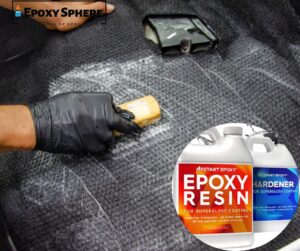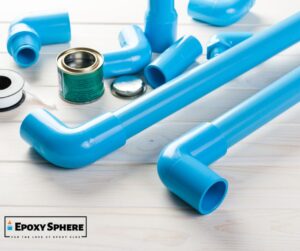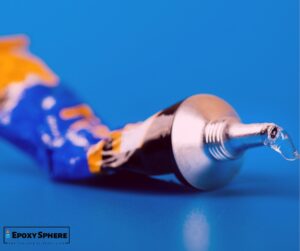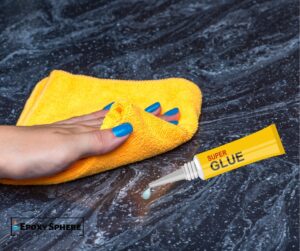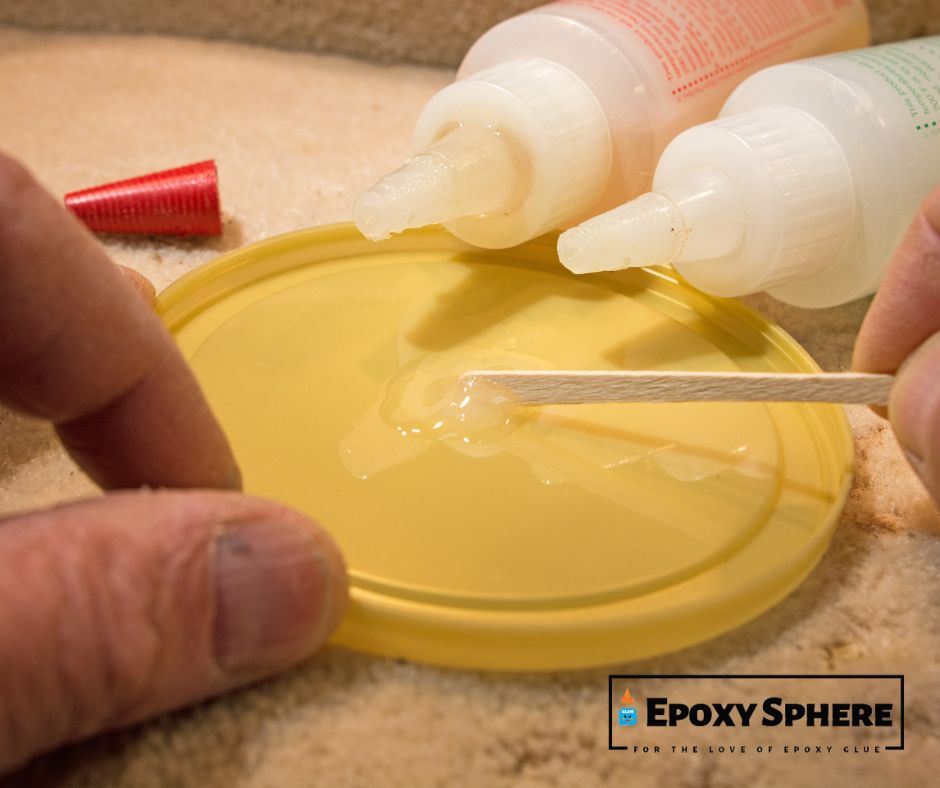
Epoxy, without a doubt, has changed the game dynamically in the lives of artists. With patience and practice, Epoxy can significantly change the appearance of items with stylish coatings and chic jewelry that seem expensive.
With the dynamic nature of Epoxy comes a ton of questions. The most common of these questions is how long does it take Epoxy to dry?
What Cure Time Can I Expect for my Epoxy?
When working on your project, the dry time of your Epoxy will vary based on the type of Epoxy used. In most cases, the manufacturer will make the information known on the container of the Epoxy you purchased.
Generally, around 72 hours is required for your Epoxy to cure fully. Irrespective of the cure duration, the resin must be allowed to cure fully before sanding or trying to move your project.
These time frames vary in different situations; the process is longer in a less humid or colder environment. Also, complex industrial epoxy projects require many fine weather days to cure. When epoxies aren’t allowed to cure properly, the task becomes susceptible to several failures.

How to Speedup Epoxy Resin Cure Time
If you are a constant user of Epoxy, especially on a large scale, you might wonder if there is a way to make your epoxy resin cure faster. Thankfully, there are some tricks and tips you can apply.
However, this efficiency depends on the epoxy resin you’re using. That said, below are a few valuable pieces of information on how to speed up epoxy cure time:
Buy a fast-curing epoxy brand
Buying and using a fast-curing epoxy will speed up the curing process. The quick-curing epoxy resin has a fast-curing agent in a ratio mix, and most of them start curing minutes after pouring.
However, to use this, you must have some experience working with epoxies. If you are a newbie to Epoxy and how they work, it’s best to stay away from this. Why? Using fast-curing Epoxy does not allow room for mistakes.
Preheat your materials
This method speeds up epoxy curing time; all you need to do is preheat your materials before you use them. Hot water can be used for this; put your resin bottle in it for 5 to 10 minutes before use.
Heat can also be applied to your resin after pouring it on your surface; tools like a blowtorch and blow dryers are used for this purpose. Make sure you use these tools at a distance and evenly spread the heat.
Increase room temperature
You can also increase the room temperature by a few degrees to impact the cure time of your Epoxy. Turning your thermostat or using a heat lamp can reduce your epoxy cure time.
Again, be careful how you use this, as increasing the temperature of your workstation can have an undesirable impact on your project.
Use UV Resin
UV epoxy resins cure in a record time of 2 minutes under exposure to UV rays by UV lamps. This method is the fastest way to cure your Epoxy.
UV resin products are specialized and can’t be cast in too thick layers. This is great for all comers as it is easy to use and comes with detailed instructions.
Other Factors That Affect the Cure Speed of Epoxy
Yes, tested and trusted methods to speed up the cute rate of Epoxy exist; there are a few things that we recommend users avoid when working with epoxy resins:
Using less amount of curing agent
Adding too much curing agent against the recommended ratio provided by the manufacturer is generally a bad idea. Too many curing agents can reduce the time your Epoxy is workable. This can lead to epoxy hardening immediately when poured.
Adding too much color
Although epoxies can be used plainly, it is mixable with colorants to help match the finishing of your project. However, care should be taken when adding colors to epoxy glue. No more than 7% color should be used with your resin and hardener. Why? Adding too many colors can actively alter the cure time of your Epoxy by extending it more than usual.
Mix matching materials
Generally, it is recommended to avoid mix-matching epoxies and hardeners. Always use the recommended curing agent that comes with your Epoxy. Faulting this will lead to a base that is not compatible with your curing agent and will never cure well.
Using excess Epoxy than normal
It’s best to stick to the maximum mixing ratio of each component as recommended by the manufacturer and be followed strictly. If one part falls out of proportion, this will lead to an increase or may result in a mixture that hardens faster or longer. Either way, it makes your Epoxy less workable.
Improper mixing of resin with hardener
Not mixing your resin and hardener correctly can also extend the cure time of your Epoxy. More importantly, it can also mean your compounds do not create the necessary mixture that leads to bonding.
Type of material you are using the Epoxy on
Although epoxies have a standard cure rate of 72 hours, they often cure differently and at different rates on different materials. This means you can expect your Epoxy to cure faster on some, while it might take longer on other material types. If your epoxy product is suitable for the material type you are using it on, then curing should be within the timeline stated.
What Happens When Epoxy Isn’t Allowed To Cure Properly?
If you fail to let your epoxy cure well on your project, you can expect any of the following to occur:
Shear or fault at the joint
Uncured Epoxy will shear or develop a fault as soon as minimal force or pressure is applied to your project. This is because the bond formation has not been completed, and as such, the joint is still susceptible to pulling apart at the slightest disturbance.
Poor quality of the project
A poorly cured epoxy will have a significantly reduced longevity which will, in turn, affect the quality of your finished project. This is especially important if your project is for sale and can adversely affect your profit.
How Product Type Affects Epoxy Cure Time
The epoxy product or brand plays a crucial role in its cure time. This is because there are several polymers that Epoxy can be made from. And with each polymer having a corresponding hardener, you can expect the cure time to be different from other products using various chemical compounds.
Knowing which polymer makes up your Epoxy can be a significant difference in how long it takes to cure. In many cases, a well-ventilated workspace will cure your project faster. In other instances, this isn’t always the case. Regardless, it’s best to always create an enabling environment to ensure your epoxy cures for as long as it needs to.
Conclusion
When it comes to how long it takes epoxy glue to cure, you are now aware of the several factors that determine the process. Regardless of the project size you are working on, letting your glue cure properly is the only way you can guarantee it doesn’t come off too soon. Therefore, it’s essential to always read the instructions on any epoxy product before purchasing it. This gives you an idea of what cure time to expect.

Hi, This is John Davis. After years of working in the construction industry, I decided to create a website that would provide people with information about glue and its exceptional uses. I hope You find it useful

